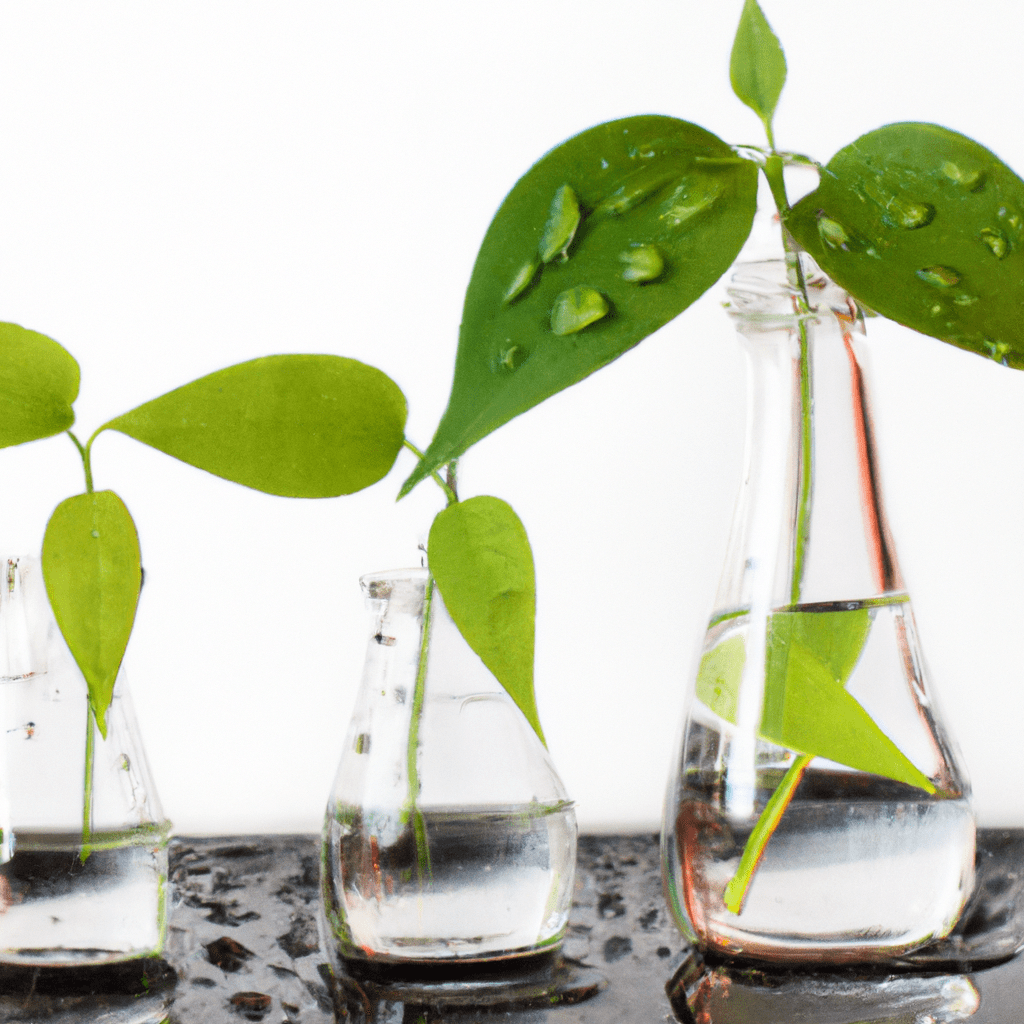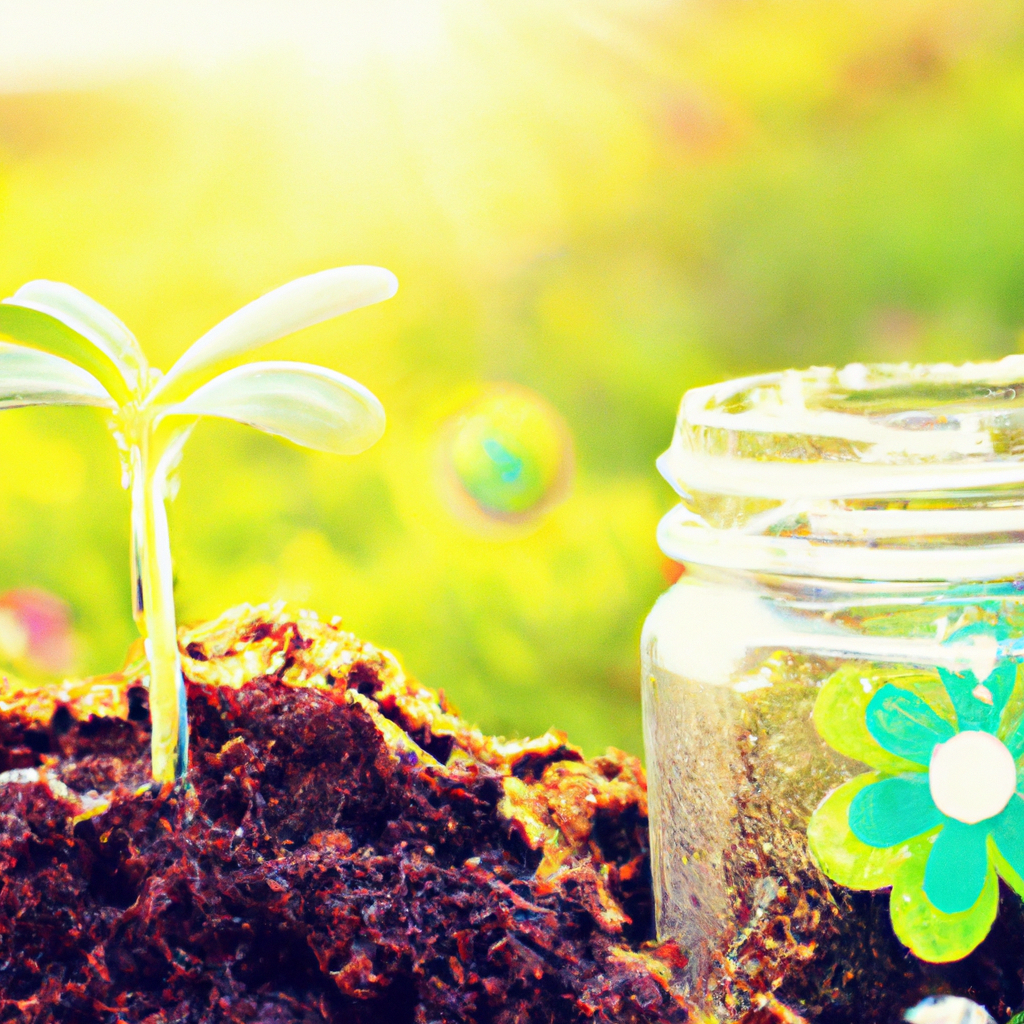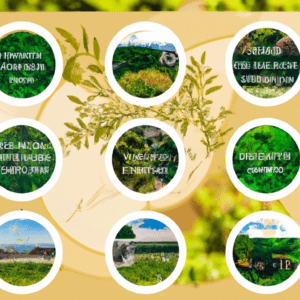Discover the path to a greener lifestyle with “Simple Steps To A Greener Lifestyle: Your Kickstart Guide To Eco-Conscious Living.” This article provides you with a comprehensive guide to sustainable living, offering practical tips and strategies that will help you make environmentally-conscious choices. By adopting simple, eco-friendly practices, you can take a step towards reducing your carbon footprint and creating a healthier planet for future generations. Whether you are just starting your journey or looking to enhance your existing efforts, this guide aims to inspire and empower you to live a more sustainable life.
Why Go Green?
Living a green lifestyle is not just a trendy or fashionable choice, but it’s a way to make a positive impact on the environment. By implementing eco-conscious habits, you can actively contribute to the preservation of our planet and its resources. Whether you’re motivated by a desire to reduce your carbon footprint, preserve natural resources, or simply improve the world around you, going green is a choice that benefits us all.
Making a positive impact on the environment
When you embrace a green lifestyle, you become an agent of change in protecting our environment. By reducing your consumption and waste, you help to minimize air and water pollution, decrease the emission of greenhouse gases, and safeguard ecosystems and biodiversity. Every small action counts – from the energy-efficient bulbs you install to the personal care products you choose. Together, these efforts add up, making a significant positive impact on the planet.
Reducing your carbon footprint
A significant reason to adopt a green lifestyle is to reduce your carbon footprint. Carbon footprint refers to the measure of greenhouse gas emissions produced by an individual or organization. By reducing your carbon footprint, you are actively working to combat climate change. Simple actions like conserving energy and using sustainable transportation can help minimize your contribution to greenhouse gas emissions. By embracing a greener way of living, you are helping to protect our planet for future generations.
Preserving natural resources
Preserving natural resources is crucial for sustaining life on our planet. By going green, you play a vital role in conserving these valuable resources. From energy conservation to water conservation, each action contributes to the preservation of our environment. By adopting environmentally friendly habits, you actively choose to consume less, use resources efficiently, and protect our precious ecosystems.
Energy Conservation
Energy conservation is a fundamental aspect of living a green lifestyle. By reducing energy consumption, you not only save money on your utility bills but also contribute to environmental preservation.
Switching to energy-efficient appliances
One of the easiest ways to conserve energy is to switch to energy-efficient appliances. Appliances with the Energy Star label are designed to use less energy without compromising their functionality. By opting for these appliances, you can significantly reduce the amount of energy consumed in your home.
Installing LED bulbs
Another simple change is to replace traditional incandescent bulbs with LED bulbs. LED bulbs are highly energy-efficient and have a longer lifespan. By making this switch, you can save energy and reduce the frequency of bulb replacements, thereby creating less waste.
Unplugging devices when not in use
Many electronic devices continue to consume energy even when they are not in use. This phenomenon, known as vampire power or standby power, can be minimized by unplugging devices when they are not being actively used. By doing so, you prevent unnecessary energy consumption and lower your electricity bills.


Water Conservation
Water is a precious resource, and its conservation is essential for both our immediate and long-term future. By implementing water conservation strategies in your daily life, you can make a substantial difference in preserving this valuable resource.
Fixing leaky faucets and pipes
A small leak may seem insignificant, but it can waste a significant amount of water over time. By promptly fixing leaky faucets and pipes, you prevent water wastage and contribute to water conservation efforts. It’s important to regularly check for leaks and address them promptly to avoid unnecessary water loss.
Using a low-flow showerhead
A significant amount of water is used during showers, but using a low-flow showerhead can help reduce this consumption. These showerheads maintain adequate water pressure while limiting the flow rate, thus conserving water without sacrificing your shower experience.
Collecting rainwater for plants
Rainwater harvesting is an effective technique for conserving water and nourishing your plants. By installing rain barrels or collecting rainwater in containers, you can reduce your reliance on municipal water supplies for watering plants or washing outdoor areas. This simple yet effective practice helps conserve water and reduces strain on local water sources.
Waste Reduction
Waste reduction is a vital part of living a green lifestyle. By actively participating in waste reduction practices, you contribute to creating a more sustainable and environmentally conscious society.
Adopting a composting system
Composting is a natural process that turns organic waste into nutrient-rich soil. By adopting a composting system, you can divert food scraps and yard waste from landfills, reducing methane gas emissions and producing valuable compost for your garden. Composting not only prevents waste but also enriches the soil, helping you grow healthy plants.
Avoiding single-use plastics
Single-use plastics, such as plastic bags and disposable cutlery, contribute significantly to environmental pollution. By avoiding the use of these items and opting for reusable alternatives, such as cloth shopping bags and reusable water bottles, you can help decrease plastic waste and its detrimental effects on wildlife and ecosystems.
Recycling and upcycling
Recycling is a familiar concept, but it is essential to ensure that we recycle properly. Understanding local recycling guidelines and segregating recyclable materials from general waste makes a significant impact. Additionally, upcycling – the process of creatively repurposing items to give them a new life – reduces waste and encourages creativity and resourcefulness.


Sustainable Transportation
Transportation is a significant contributor to greenhouse gas emissions. By adopting sustainable transportation options, you can reduce your carbon footprint and contribute to a greener environment.
Cycling or walking for short distances
For short distances, consider cycling or walking instead of driving. Not only does this help reduce emissions, but it also promotes a healthier lifestyle. By choosing human-powered modes of transportation, you can save fuel, reduce pollution, and improve your overall well-being.
Using public transportation
Public transportation is a more sustainable alternative to driving alone. By utilizing buses, trains, or subways, you reduce traffic congestion and carbon emissions. Public transportation also offers opportunities for social interaction, reducing the number of cars on the road and fostering a sense of community.
Carrying out regular vehicle maintenance
If using a personal vehicle is necessary, ensure regular maintenance to maximize fuel efficiency and minimize emissions. Regularly servicing your vehicle, checking tire pressure, and using the recommended grade of motor oil can help reduce fuel consumption and decrease your environmental impact.
Eating Green
The food we consume has a significant environmental impact. By making conscious choices regarding our diet, we can contribute to a more sustainable food system and a greener planet.
Choosing organic and locally sourced food
Opting for organic, locally sourced food reduces our reliance on chemical inputs and supports local farmers. Organic farming practices prioritize environmental sustainability by avoiding synthetic fertilizers and pesticides, promoting biodiversity, and conserving water resources. Locally sourced food not only reduces the carbon footprint associated with transportation but also supports the local economy and fosters community engagement.
Eating less meat and more plant-based meals
Livestock production has a substantial environmental impact, contributing to deforestation, water pollution, and greenhouse gas emissions. By reducing our meat consumption and incorporating more plant-based meals into our diet, we can help decrease the demand for unsustainable animal agriculture and support a more environmentally friendly food system.
Reducing food waste
Food waste not only squanders valuable resources but also contributes to greenhouse gas emissions in landfills. Planning meals, properly storing food, and composting or donating surplus items are effective ways to reduce food waste. By mindful consumption and responsible food management, we can reduce our ecological footprint and contribute to a more sustainable future.


Green Cleaning
Cleaning our homes is a necessary task, but it’s important to consider the environmental impact of the cleaning products we use. By opting for eco-friendly alternatives, we can clean our living spaces while minimizing harm to the environment.
Using eco-friendly cleaning products
Many conventional cleaning products contain harmful chemicals that can negatively impact our health and the environment. By choosing eco-friendly cleaning products, you can reduce exposure to toxic substances, minimize water pollution, and support sustainable manufacturing practices. Look for products that are biodegradable, plant-based, and free from synthetic fragrances and harsh chemicals.
Making homemade cleaners
Homemade cleaners are an excellent alternative to store-bought products, as they can be made using common household ingredients like vinegar, baking soda, and lemon juice. These natural cleaners are effective and safe for both you and the environment. By making your own cleaners, you reduce waste from plastic packaging and have greater control over the ingredients you use.
Switching to microfiber or reusable cloths
Many cleaning practices involve disposable materials like paper towels or single-use wipes. By switching to microfiber cloths or reusable cleaning cloths, you can significantly reduce waste. Microfiber cloths are highly absorbent and can be washed and reused, making them a durable and eco-friendly choice for cleaning.
Reducing Chemical Usage
The chemicals we use in our personal care routine and household products can have long-lasting effects on our health and the environment. By opting for natural alternatives and avoiding harmful substances, we can promote a healthier, greener lifestyle.
Opting for natural personal care products
Conventional personal care products often contain chemicals like parabens, phthalates, and synthetic fragrances that can harm both our bodies and the environment. By choosing natural and organic alternatives, you can minimize your exposure to these toxins and support the production of sustainable, cruelty-free products. Look for products with transparent ingredient lists and certifications from reputable organizations.
Avoiding synthetic pesticides and fertilizers
The use of synthetic pesticides and fertilizers in gardening can have detrimental effects on our environment and pollinators. By adopting organic gardening practices and alternatives to chemical pest control, you create a safer environment for both plants and beneficial insects. Natural pest deterrents like companion planting and the use of organic compost and mulch can promote plant health and biodiversity.
Using non-toxic household products
Many household products contain harmful substances like ammonia, bleach, and volatile organic compounds (VOCs). By choosing non-toxic products, you can protect the air quality in your home, minimize water pollution, and reduce the ecological impact of these chemicals. Look for natural, biodegradable alternatives or consider making your own household cleaners using safe and accessible ingredients.


Minimizing Paper Usage
Paper consumption contributes to deforestation and greenhouse gas emissions. By reducing paper usage in our daily lives, we can minimize our environmental impact and move towards a more sustainable future.
Going digital with bills and receipts
Opting for digital bills and receipts reduces the demand for paper and saves resources. Many service providers offer digital billing options that allow you to receive and pay bills online. Similarly, requesting digital receipts or keeping digital records can help reduce paper waste and clutter.
Using cloth napkins and towels
Instead of disposable paper products like paper napkins and towels, consider using cloth alternatives. Cloth napkins and towels are reusable, easy to clean, and significantly reduce your paper consumption. By making this switch, you can save trees and reduce waste in landfills.
Printing on both sides of the paper
When printing documents, utilize the “duplex” or “double-sided” feature of your printer. Printing on both sides of the paper cuts paper usage in half and helps conserve valuable resources. Additionally, consider using recycled or sustainably sourced paper for printing purposes to further minimize your ecological footprint.
Creating a Sustainable Garden
Gardening provides a wonderful opportunity to connect with nature and grow your own food. By adopting sustainable practices in your garden, you can create a thriving, eco-friendly space that benefits both you and the environment.
Planting native species
Planting native plants supports biodiversity and helps maintain local ecosystems. Native species are adapted to the region’s climate, require less water, and provide important habitats for local wildlife. By incorporating native plants into your garden, you promote a sustainable environment and contribute to the preservation of natural flora and fauna.
Composting yard waste
Composting yard waste like leaves, grass clippings, and small branches reduces the amount of organic material sent to landfills. Compost enriches the soil, improves water retention, reduces the need for synthetic fertilizers, and supports the health of your plants. By composting yard waste, you close the nutrient loop and promote a sustainable garden ecosystem.
Conserving water in the garden
Watering our gardens efficiently is essential for conserving water resources. Avoiding overwatering, using targeted watering methods like drip irrigation or soaker hoses, and watering during cooler times of the day can significantly reduce water consumption. Additionally, incorporating water-saving techniques like mulching and proper soil preparation can help retain moisture and minimize water loss through evaporation.
By implementing the various strategies and practices outlined here, you can embrace a greener way of living. Each small step you take towards an eco-conscious lifestyle contributes to a more sustainable and vibrant planet. Together, let’s strive to make a positive impact on the environment and create a better world for future generations.













